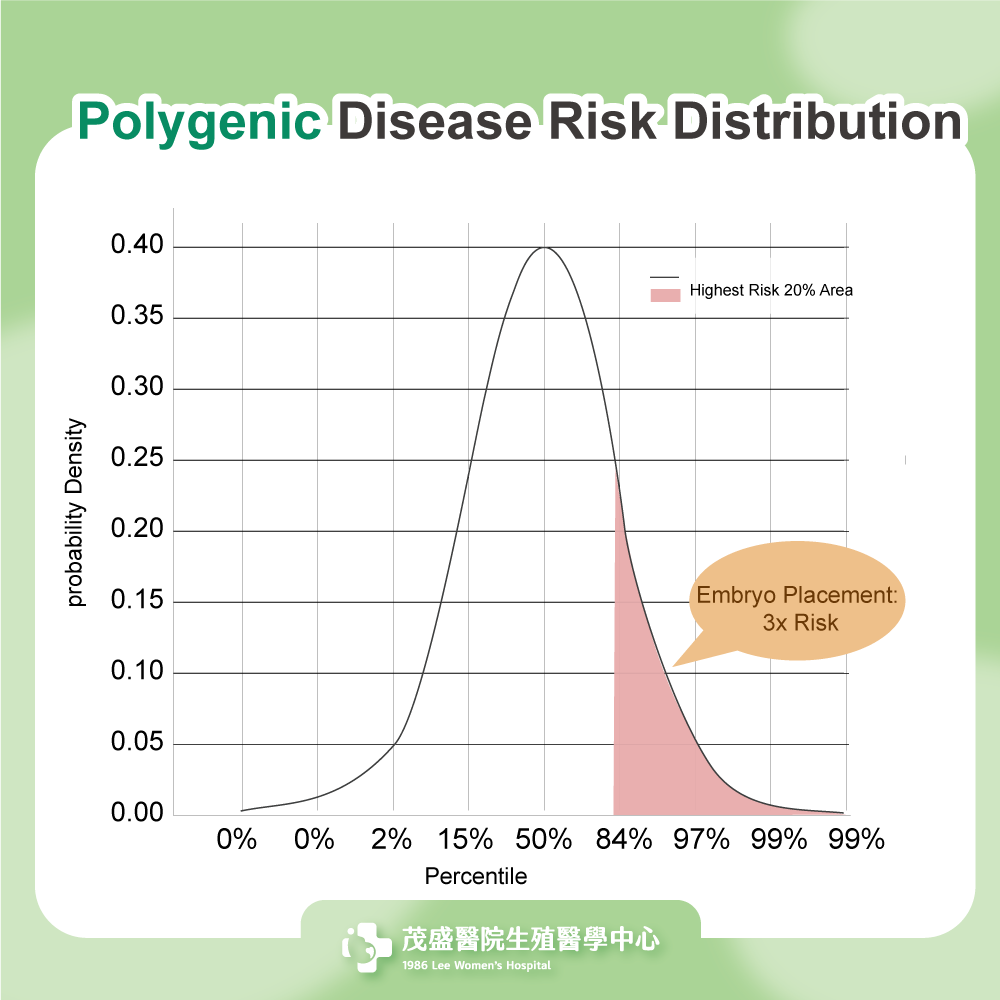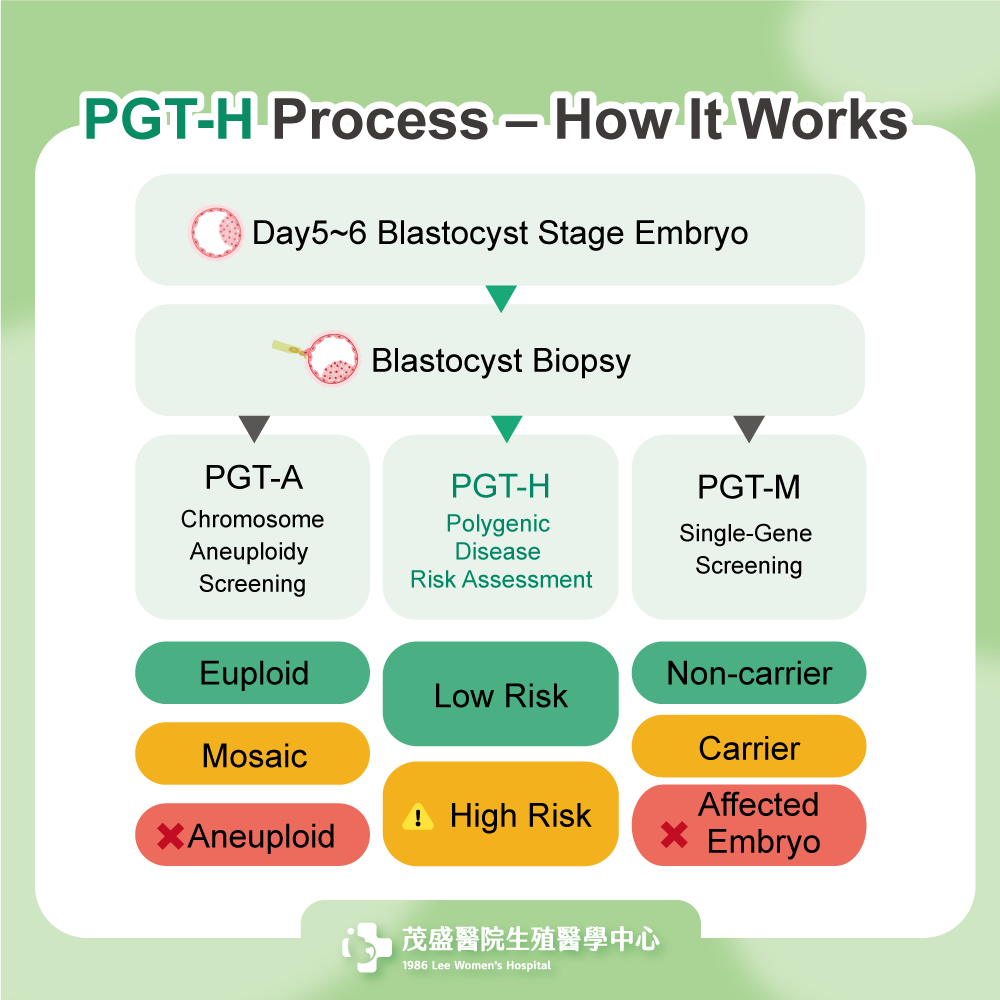Knowledge Sharing
Getting to Know PGT-H: Checking Genetic Risk Before Embryo Transfer
Understanding PGT-H: Polygenic Risk Assessment Before Embryo Transfer
What is PGT-H?
PGT-H is a new approach that brings together IVF treatment and advanced genetic testing.
Before an embryo is transferred, DNA samples are analyzed to estimate the likelihood of developing certain conditions later in life. This is done by calculating a Polygenic Risk Score (PRS)—a score that reflects the combined influence of many genes.
With PGT-H, doctors can evaluate the genetic risk for common polygenic conditions such as type 1 and type 2 diabetes, or high blood pressure.
This is different from PGT-M, which looks at single-gene disorders (like thalassemia). PGT-H focuses on diseases influenced by dozens or even hundreds of gene variants (SNPs), together with lifestyle and environmental factors.
By using this kind of risk assessment, families can give their future children a healthier start in life.
How is the risk score calculated?
PGT-H relies on large-scale genetic studies of populations to build statistical models that estimate potential health risks in embryos. These models look at many genetic variations (called SNPs) linked to different diseases, and combine them into what’s known as a Polygenic Risk Score (PRS).For example, if an embryo’s PRS shows an 80% higher-than-average risk of developing diabetes, it means that under similar lifestyle and environmental conditions, this embryo is more likely to develop the disease compared to the general population.
By using this type of evaluation, doctors and families can better understand potential health risks before embryo transfer, helping them make more informed decisions about their reproductive options.

Why consider PGT-H?
- For patients who have experienced miscarriage or repeated IVF failures, PGT-H may provide additional insight when combined with other tests (such as PGT-A).
- It is not a treatment or a way to prevent disease, but rather a tool to help prioritize embryos with lower genetic risk for transfer.
- The risks assessed are probabilities, not certainties. PGT-H cannot guarantee that a child will never develop a condition, but healthy lifestyle choices later in life can help reduce those risks.
What conditions can PGT-H assess?
At our hospital, PGT-H currently focuses on the 10 most common diseases among people in Taiwan.- Type 1 DM
- Type 2 DM
- Coronary Artery Disease
- Myocardial Infarction
- LDL Abnormality
- Hypertension
- Breast Cancer
- Colorectal Cancer
- Hepatocellular Carcinoma
- Lung Cancer
PGT-H Process
- The couple provides blood samples to establish genetic data.
- Embryos are created through the IVF process.
- On day 5–6, embryos undergo biopsy and genetic analysis.
- Each embryo’s disease risk score is calculated.
- A report is provided, ranking embryos by risk level to help guide embryo selection.

With PGT-H, fertility decisions can be made with greater foresight, adding another layer of protection for your future child’s health. While genetic risks can never be completely eliminated, science and technology allow us to make wiser choices.
If you would like to learn more about PGT-H or find out whether it may be suitable for you, we welcome you to book a consultation with DR. Chun-I Lee, Director of the Genetic Diagnosis Laboratory at Lee Women’s Hospital, to discuss your options in detail and plan the best start for your baby’s future.
- Reviewing Physician: DR. Chun-I Lee
<< Contact us >>
For overseas patients, please leave a message below or Email to ivftaiwan@gmail.com
For patients in Hong Kong and Macau, please Email to ivftaiwan.hk@gmail.com
For patients in China, please add our official WeChat account: ivftaiwan01
★Any immediate or urgent inquiry, please dial +886-4-22347057 #1324




